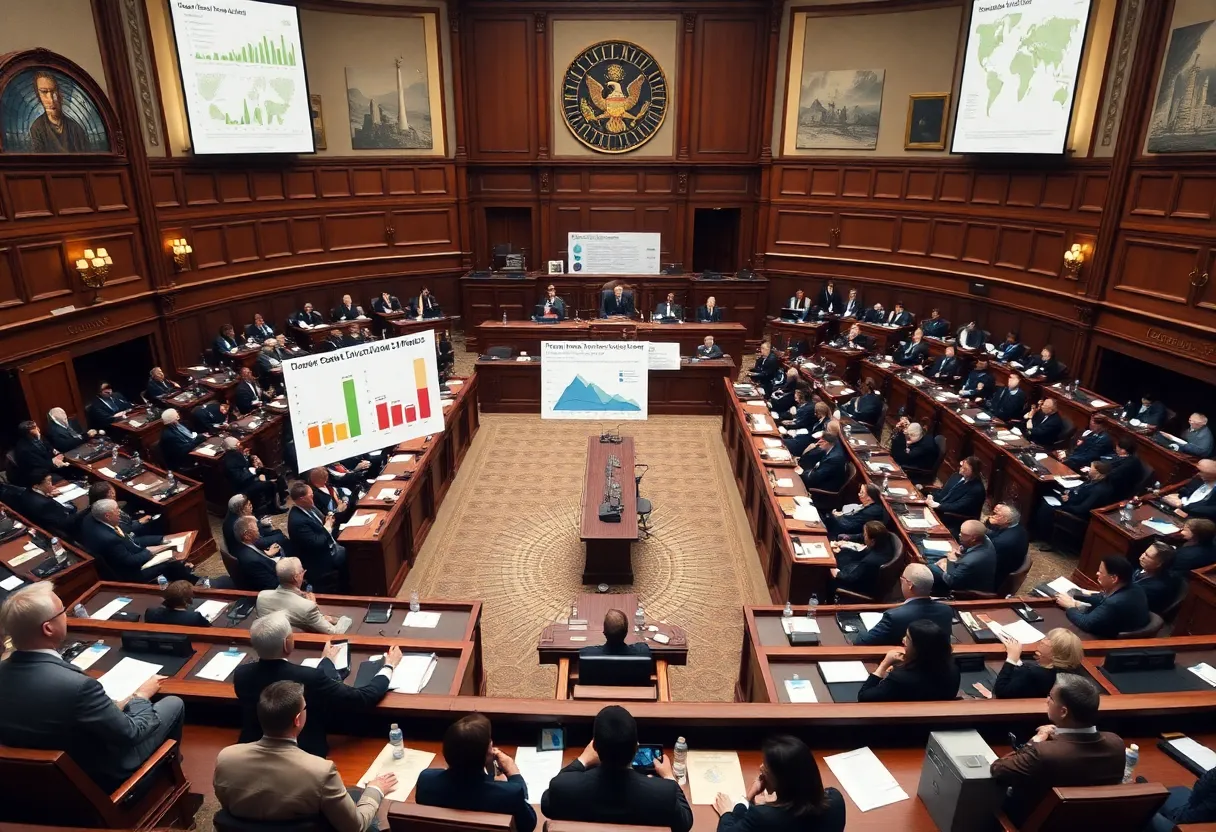News Summary
On May 22, 2025, the U.S. Senate voted 51-44 to revoke key vehicle emissions waivers granted to California, allowing the state to implement stricter pollution standards. This controversial decision has sparked legal battles and environmental concerns, as critics argue it undermines California’s ability to combat air pollution effectively. Governor Gavin Newsom and environmental groups have pledged to challenge the vote legally, while supporters in the auto industry argue the changes are necessary for economic stability. The implications of this vote may extend to other states following California’s emissions standards.
California—On May 22, 2025, the U.S. Senate voted 51-44 to revoke three vehicle emissions waivers granted to California, a move that has ignited significant legal and environmental controversy. The revocation will dismantle rules that previously allowed California to set stricter vehicle emissions standards than those federally mandated.
One Democratic senator, Elissa Slotkin of Michigan, crossed party lines to support the Republican-led initiative. Senate Minority Leader Chuck Schumer denounced the action, labeling it a “nuclear option.” The revoked waivers specifically aimed to reduce tailpipe emissions from medium and heavy-duty vehicles, cut down smog pollution from trucks, and implement California’s “EV mandate,” which sought to phase out gas-powered cars entirely by 2035, with the program set to launch in 2026.
These waivers had been approved by the Environmental Protection Agency (EPA) under the Biden administration in 2024, based on California’s rights under the Clean Air Act. This act allows the state to set more stringent regulations provided it meets specific criteria, including obtaining necessary waivers from the EPA.
Legal experts express concern regarding the Senate’s decision, arguing it undermines established norms. The Congressional Review Act, employed by Republicans to facilitate the revocation, allows Congress to overturn federal agency rules with a simple majority. However, this understanding is contested, with the Government Accountability Office and the Senate parliamentarian determining that the waivers do not equate to rules eligible for revocation under this act.
Senate Majority Leader John Thune contends that the EPA viewed the waivers as rules submitted to Congress, while Senate Democrats maintain that overriding the parliamentarian’s decisions could set a problematic precedent for future legislation. They assert the vote violates legal standards, suggesting it could lead to further legislative maneuvering that risks undermining the integrity of the Senate.
In reaction to the Senate’s vote, environmental groups have expressed outrage, arguing it hampers California’s ability to combat pollution effectively. The California Air Resources Board, which initially requested the waivers, has noted that previous comparable waivers have contributed to a remarkable 99% reduction in vehicle pollution since 1970. Former California Air Resources Board chair Mary Nichols has indicated that should Congress revoke the waivers, California would pursue legal action against the federal government.
California Governor Gavin Newsom has announced intentions to legally challenge the Senate’s decision, labeling the vote illegal and a violation of established precedent. The implications of this vote are anticipated to extend beyond California, potentially affecting 16 other states and the District of Columbia, which have adopted California’s vehicle standards.
Support for the waiver revocation has emerged from the auto industry, with proponents arguing that California’s emissions rules pose threats to jobs and economic stability, particularly for businesses that rely on internal combustion engines. Conversely, environmental advocates have condemned the use of the Congressional Review Act in this context, warning it may set a dangerous trajectory for negating other executive actions in the future.
The vote illustrates a stark partisan divide, with Republicans challenging California’s aggressive climate strategies and asserting these policies limit consumer choice and economic growth. This moment represents a significant ideological shift, contrasting with previous Republican administrations, including those of Nixon and Reagan, which engaged in landmark environmental legislation.
The application of the Congressional Review Act in this instance raises questions among lawmakers, who caution that such actions could justify similar moves when parties change control. As the legislative landscape continues to evolve, the repercussions of the Senate’s decision on emissions standards could resonate widely through federal, state, and industry responses, framing the ongoing debate over environmental regulations and their implications for public health and economic stability.
Deeper Dive: News & Info About This Topic
- The Guardian: Republicans Revoking California’s EPA Waiver
- Wikipedia: California Emissions Standards
- CBS News: Senate GOP Set to Revoke California’s Car Emissions Standards
- Google Search: California Emission Standards
- LA Times: Senate Votes to Overturn California’s Gas-Only Car Ban
- Google Scholar: California Vehicle Emissions
- AP News: Congress and California’s Vehicle Emissions
- Encyclopedia Britannica: California Air Resources Board

Author: STAFF HERE MISSION VIEJO WRITER
The MISSION VIEJO STAFF WRITER represents the experienced team at HEREMissionViejo.com, your go-to source for actionable local news and information in Mission Viejo, Orange County, and beyond. Specializing in "news you can use," we cover essential topics like product reviews for personal and business needs, local business directories, politics, real estate trends, neighborhood insights, and state news affecting the area—with deep expertise drawn from years of dedicated reporting and strong community input, including local press releases and business updates. We deliver top reporting on high-value events such as Oso Fit 5K Fun Run and Community Health Fair, Walk Against Drugs & Community Fair, and National Night Out. Our coverage extends to key organizations like the Mission Viejo Chamber of Commerce and Providence Mission Hospital Mission Viejo, plus leading businesses in retail and education that power the local economy such as The Shops at Mission Viejo, Capistrano Unified School District, and Amazon Delivery Station. As part of the broader HERE network, including HEREAnaheim.com, HEREBeverlyHills.com, HERECostaMesa.com, HERECoronado.com, HEREHollywood.com, HEREHuntingtonBeach.com, HERELongBeach.com, HERELosAngeles.com, HERESanDiego.com, and HERESantaAna.com, we provide comprehensive, credible insights into California's dynamic landscape.


